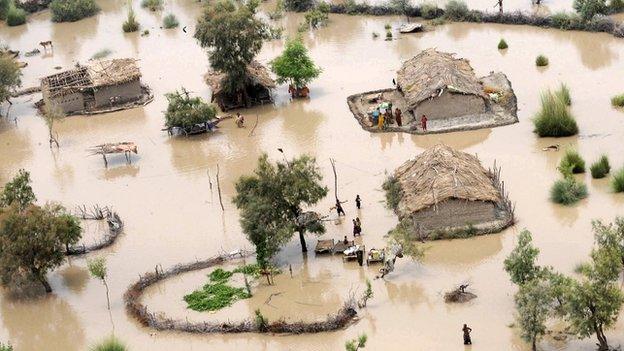Rich countries to discuss Green Climate Fund in Berlin
- Published
- comments
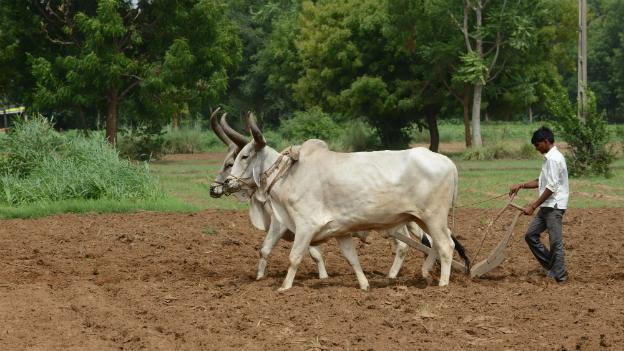
One UK minister said rich nations must help developing nations struggling with the effects of climate change
Rich countries are set to meet in Berlin to pledge cash to smooth the way for a global climate change deal.
The Green Climate Fund is designed to help poor nations adapt to climate extremes like droughts and floods and to buy low-carbon energy sources.
Rich nations previously vowed that by 2020, developing countries would get $100bn (£64bn) a year from such a fund.
The Berlin conference aims to create a focus that will embarrass governments to come forward with contributions.
The Green Climate Fund (GCF) is supposed to hold at least $10bn by the end of 2014.
The US has pledged $3bn, Japan has offered $1.5bn, and France and Germany have also offered significant sums.
It is thought that the UK will pledge around $1bn from existing aid budgets.
The UK's contribution will come out of the £3.87bn budget set aside in the aid budget from 2011-2016 for helping poor countries get clean energy and adapt to climate change.
In Bangladesh for example, British cash is helping landless people living in precarious temporary sandbanks that appear for a few years in the middle of rivers.
The cash pays them to build their homes on earth platforms so their possessions are safe from flooding which is expected to get worse with climate change.
Conservative Sir Edward Leigh and Energy Secretary Ed Davey on Green Climate Fund
UK aid experts say the river-dwellers are so poor that if they do not get paid daily they cannot eat - and if they do not eat they have no energy to build the platforms.
'Our moral duty'
"The poorest and most vulnerable on the planet are already suffering the effects of climate change and it's our moral duty to act," UK Secretary of State for Climate Change Ed Davey told the BBC.
He said the aid could save lives by protecting low-lying islands and coastal settlements from the impact of rising sea levels and helping farmers hit by the weather effects of climate change.
"I urge other countries to be equally ambitious," he added.
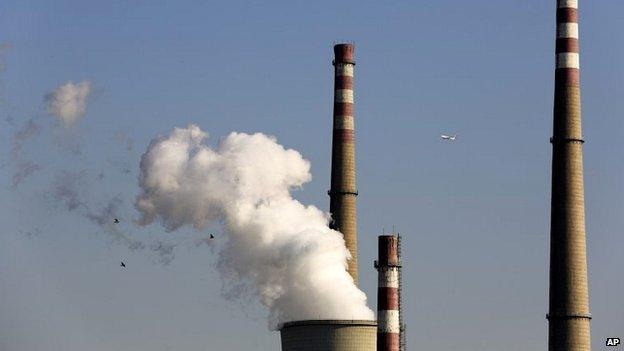
The Green Climate Fund was set up because developed nations have caused the majority of global warming
UK Prime Minister David Cameron has been under pressure from critics who say the UK should spend the money helping combat the effects of extreme weather at home.
Benny Peiser from GWPF said international climate finance for low carbon development was "a detrimental use of aid money".
"The international community should be encouraging the development of the cheapest forms of electricity generation that offer populations in the developing world the best chances of escaping poverty," he said.
The fund was agreed because developed nations have caused the majority of global warming so far - and their CO2 emissions stay in the atmosphere for 100 years. Poor countries asked for help to adapt to climate change they have not caused.
As greenhouse gas emissions are a global problem, rich nations acknowledged a degree of self-interest in helping developing countries to invest in clean technology too.
'A drop in the ocean'
Asad Rehman from Friends of the Earth said: "Helping poorer nations to develop their economies cleanly and without wrecking our atmosphere is in all of our interests. As one of the nations most responsible for historic carbon dioxide emissions, the UK should be taking a lead in tackling climate change."
But he said the UK's pledge was "a drop in the ocean compared to what is desperately needed".
"Britain's contribution must also be new and additional money - not raided from existing aid pledges. Some of it should come from the hundreds of millions of pounds they hand over every year to dirty energy corporations," he added.
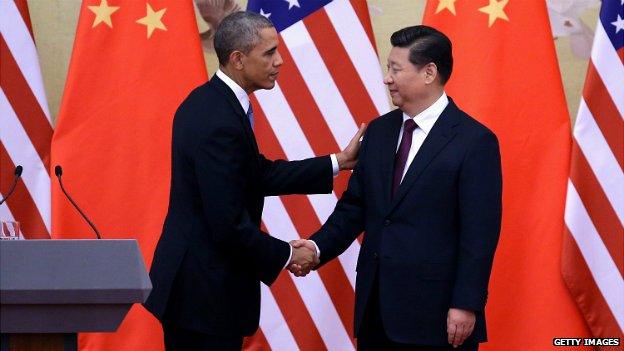
US President Obama agreed a deal with Chinese President Xi Jinping to limit both countries' emissions
The middle income countries of Korea, Indonesia and Mexico have made voluntary contributions to the pot - Korea has pledged $100m. The climate-sceptic Australian government says it will not commit money.
Pa Ousman Jarju, Gambia's environment minister, said he wanted to hear significant pledges come out of Berlin.
"We expect a minimum of $15bn to come out of the pledging conference. We are glad that, with the recent US and Japan pledges, it has reached around $7.5bn," he said.
There has already been acrimony over the tardy contributions from some rich nations - and Mr Jarju warned mistrust would increase if rich countries failed to make proper contributions.
Rich nations and poor alike need each other if the world is to reach a global climate agreement scheduled for Paris next December.
Update 13 January 2015: An earlier version of this article described the GWPF as a "fossil fuel lobby group". While we do not believe this would have been understood to mean that either the Global Warming Policy Foundation or Forum lobbies on behalf of the fossil fuel industry and/or is funded by it, the Foundation has told us that both it and the Forum are strictly independent of the fossil fuel industry and we are happy to make this clear.
- Published12 June 2014
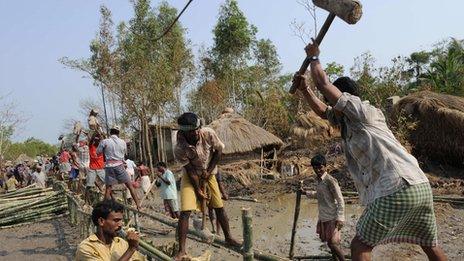
- Published12 November 2014
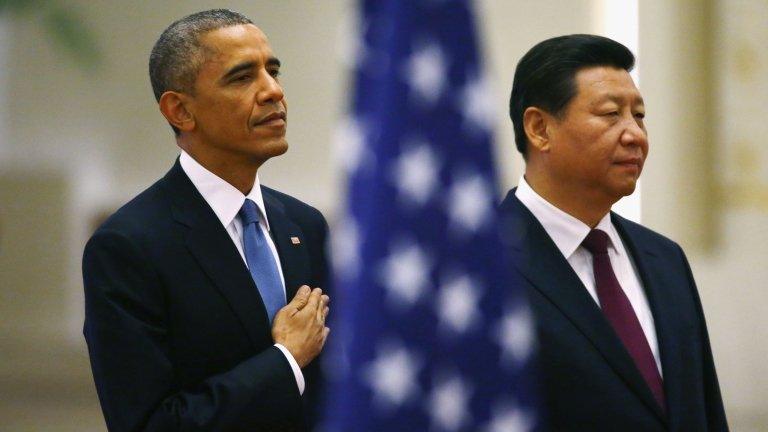
- Published2 November 2014
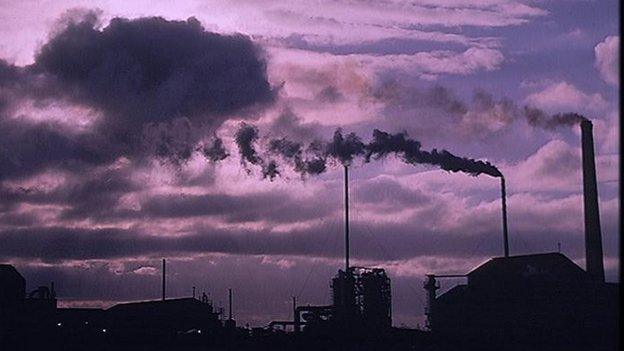
- Published31 March 2014
